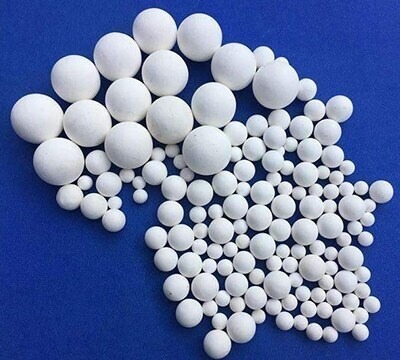Industrial processes across sectors such as petrochemicals, pharmaceuticals, water treatment, and air separation require precise control over moisture and impurities. Advanced adsorption materials significantly enhance efficiency, improve product quality, and reduce operational costs. Two of the most effective and widely used adsorbents are Activated Alumina and Molecular Sieves.
Understanding Adsorption in Industrial Processes
Adsorption is a process where molecules adhere to the surface of solid materials (adsorbents). Unlike absorption, adsorption involves capturing impurities on a material’s surface rather than dissolving them. This capability makes adsorption particularly valuable in industries requiring high purity levels, dry environments, and contaminant-free production processes.
Activated Alumina: A Versatile Industrial Adsorbent
Activated alumina, a highly porous form of aluminum oxide (Al₂O₃), is recognized for its exceptional adsorption capacity and chemical stability.
Key Properties and Benefits:
- High Moisture Adsorption: Superior performance in removing moisture from gases and liquids.
- Regenerability: Can be regenerated by heating, providing cost-effective and sustainable reuse.
- Chemical and Thermal Stability: Withstands harsh environments and high temperatures without significant degradation.
- Low Dust Generation: Reduces contamination risks in sensitive applications.
Major Industrial Applications:
- Gas and Air Drying: Commonly used for drying compressed air, hydrogen, oxygen, and other industrial gases.
- Liquid Drying: Essential in removing moisture from liquids, particularly in petroleum refining and chemical processing.
- Water Purification: Effective in removing fluoride, arsenic, and phosphates from water, ensuring safe drinking water standards.
- Catalyst Carrier: Serves as a robust carrier for catalysts in petrochemical and chemical manufacturing processes.
Molecular Sieves: Precision and Selectivity in Adsorption
Molecular sieves are crystalline adsorbents made from aluminosilicate materials, known for their uniform pore sizes and highly selective adsorption capabilities.
Key Properties and Benefits:
- Selective Adsorption: Precisely separates molecules based on size and polarity.
- Uniform Pore Structure: Adjustable and uniform pores provide targeted separation and adsorption.
- High Adsorption Efficiency: Effectively achieves extremely low moisture levels and impurity removal.
- High Crush Strength: Robust structure suitable for demanding industrial environments.
Major Industrial Applications:
- Gas Separation: Ideal for oxygen concentrators and nitrogen generation via Pressure Swing Adsorption (PSA) systems.
- Ethylene and Propylene Drying: Removes moisture to safeguard chemical production integrity.
- Refrigerant Drying: Prevents moisture-related corrosion in refrigeration systems.
- Petrochemical Refining: Separates normal and branched paraffins, enhancing refinery efficiency and product quality.
Comparative Insights: Activated Alumina vs. Molecular Sieves
When to Choose Activated Alumina:
- Applications requiring large-scale moisture adsorption.
- Situations demanding chemical stability and cost-effective regeneration.
- Environments where low dust generation and physical durability are crucial.
When to Opt for Molecular Sieves:
- Precise molecular separations and achieving very low dew points.
- Processes needing selective adsorption and stringent purity standards.
- High-pressure systems requiring robust adsorbent structures.
Best Practices for Maximizing Adsorption Efficiency
To ensure maximum efficiency from adsorption materials:
- Regularly regenerate adsorbents to maintain peak performance.
- Store adsorbents properly in airtight containers to prevent premature adsorption.
- Monitor adsorption performance consistently and replace adsorbents when regeneration becomes less effective.
- Partner with suppliers offering technical expertise and product support.
Conclusion
Advanced adsorption materials, including activated alumina and molecular sieves, significantly improve industrial efficiency by effectively managing moisture and impurities. Understanding the distinct advantages and appropriate applications of each adsorbent allows industries to optimize their processes, enhance product quality, and achieve sustainability goals.
For specialized solutions and guidance on choosing the right adsorbent material, contact industry experts and trusted global suppliers like Medaad to effectively meet your industrial adsorption requirements.

















